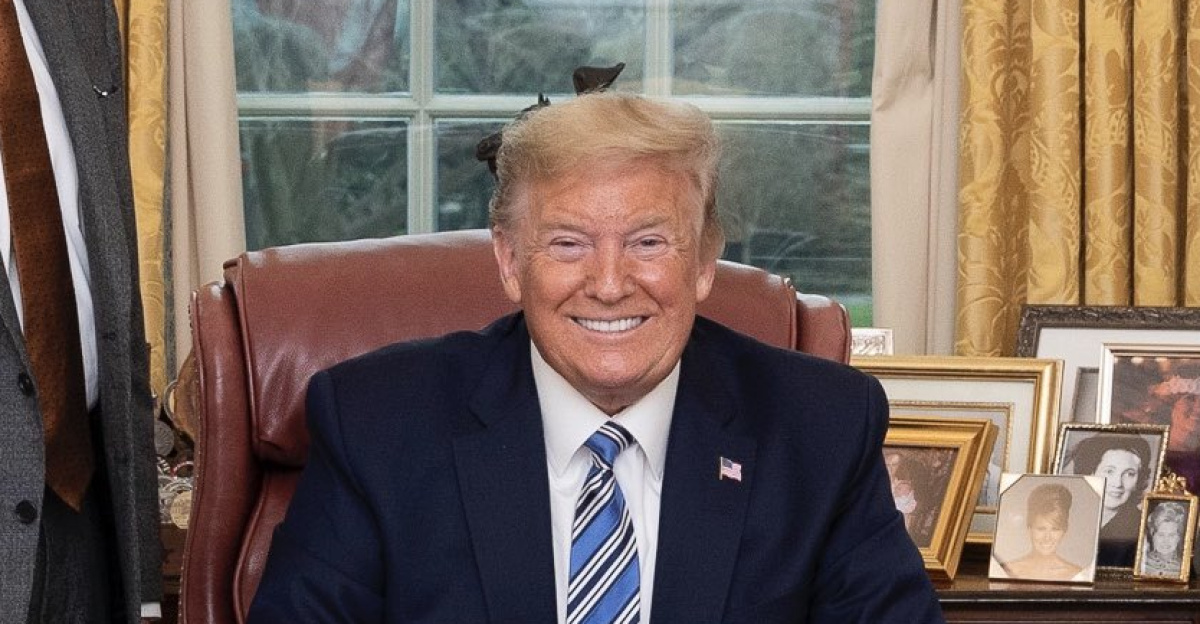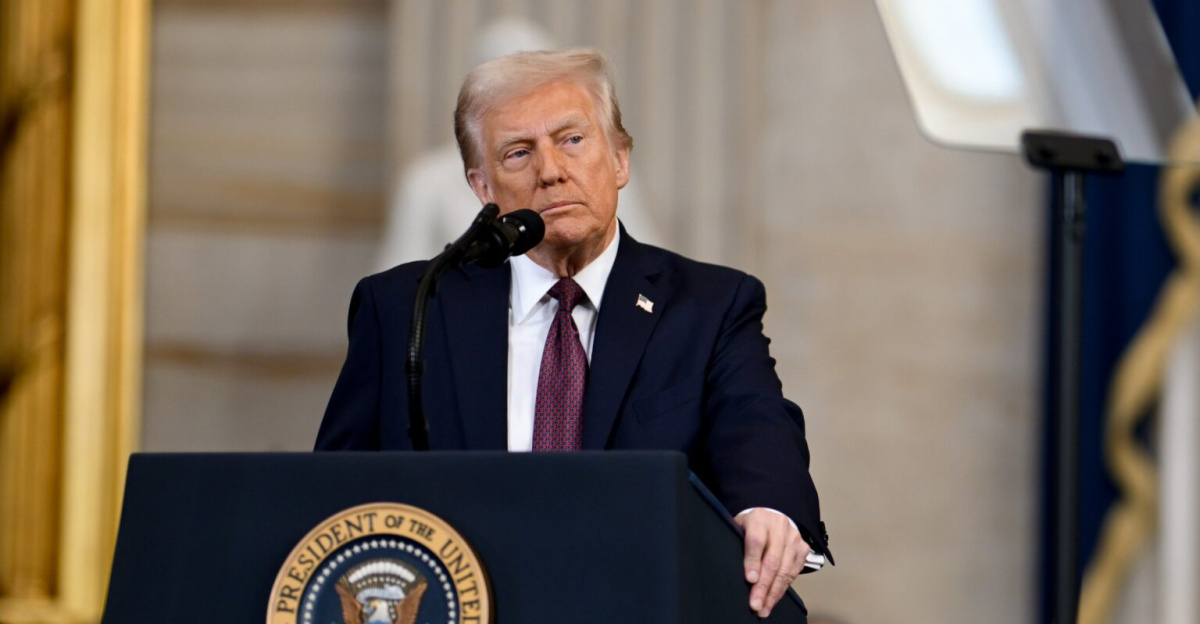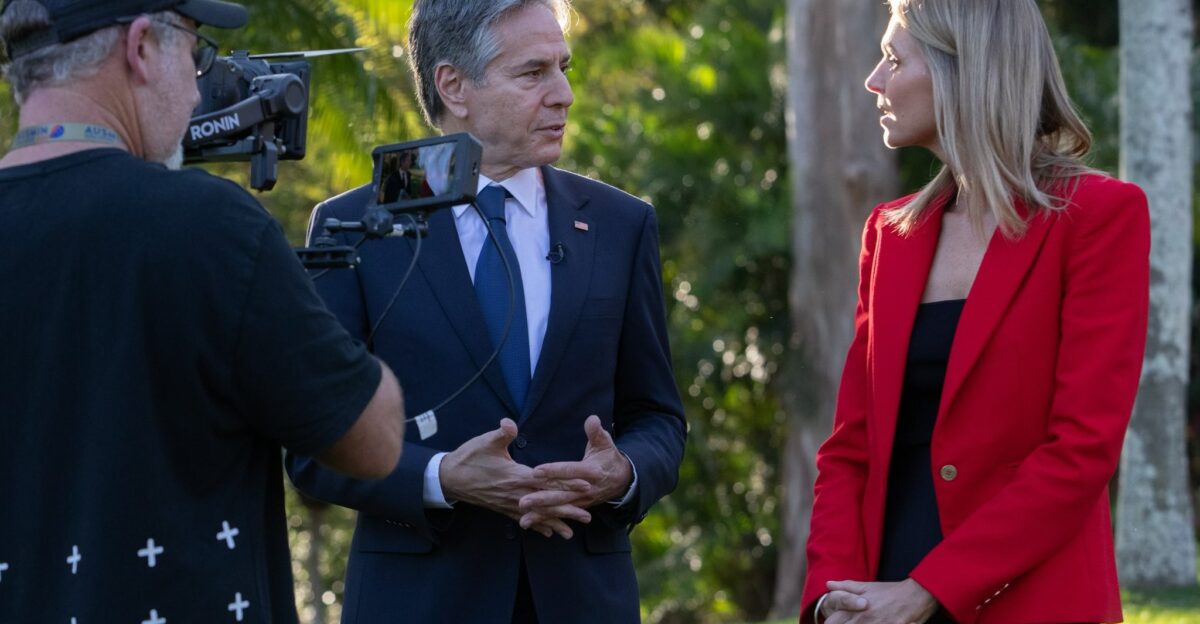
Claudia Milne, who has been the head of standards and practices at CBS News since 2021, announced her resignation on October 16, 2025. She is the first senior executive to leave after Bari Weiss was controversially appointed as editor-in-chief.
Milne urged her colleagues to “keep asking tough questions” and “hold the powerful to account” during “complicated times.” Her father, Stephen, worked at CBS News’ London Bureau for 30 years, supporting 60 Minutes and major broadcasts.
The Weiss Takeover

Ten days before Milne left, Paramount hired Bari Weiss as CBS News editor-in-chief after buying her company, The Free Press, for $150 million.
Weiss has no experience in broadcast journalism or managing a newsroom. Former CBS anchor Dan Rather criticized the move, calling it “a dark day,” and warned that the network “is no longer independent” under “the tutelage of a conservative billionaire.”
Breaking a 57-Year Legacy

CBS News built its reputation on key events, including Edward R. Murrow’s challenge to McCarthy, Walter Cronkite’s declaration that the Vietnam War was unwinnable, and 60 Minutes’ exposure of corruption, since 1968. Milne’s team fact-checked scripts and enforced ethical standards.
Promoted in August 2021 to senior vice president of standards and practices, she led CBS News Confirmed, an initiative aimed at combating deepfakes and misinformation. Now, that protection is weakening.
The Lawsuit

In late 2024, Donald Trump, who was running for president, sued CBS for $20 billion. He claimed that CBS used “deceptive editing” in a 60 Minutes interview with Vice President Kamala Harris to help her campaign. Legal experts widely considered the lawsuit to be frivolous and protected by the First Amendment.
However, the timing was important: Paramount needed federal approval for its $8 billion merger with Skydance Media, which required the Trump administration’s FCC to approve the transfer of broadcast licenses to new owners.
$16 Million Surrender

On July 2, 2025, Paramount paid President Trump $16 million for his presidential library, without needing to apologize, to settle a lawsuit. Reuters reported that CBS staff members felt “widespread distress” and viewed this as giving in.
Veteran producer Rome Hartman called it “cowardly capitulation by Paramount’s corporate leaders and a fundamental betrayal of 60 Minutes and CBS News.” The settlement cleared regulatory obstacles for the Skydance merger.
Owens Walks

Bill Owens, the Executive Producer of 60 Minutes, resigned on April 22, 2025, citing pressure from Paramount to avoid upsetting political figures. His departure came as a surprise to many in the industry.
McMahon left weeks later, with both pushed out for opposing the Trump settlement.
CEO Forced Out

Wendy McMahon, CEO of CBS News and Stations since 2021, was removed from her position on May 19, 2025, after she publicly defended the integrity of the 60 Minutes team. In her statement about leaving, she said, “It’s become clear the company and I do not agree on the path forward.”
NPR reported that both McMahon and Owens left to help make way for independent reporting, which is a way of saying the company is cleaning house before bringing in new leadership that is more friendly to Trump.
ABC’s Parallel Surrender

CBS settled after ABC decided to pay Trump $15 million in December 2024. This payment was related to comments made by George Stephanopoulos about the E. Jean Carroll case.
Tim Richardson from PEN America warned, “With two major networks capitulating to the president in quick succession, empowered politicians will feel free to weaponize lawsuits and regulatory pressure to stifle independent journalism.” A pattern emerged.
Transcript Trap

A 60 Minutes employee told Reuters that the settlement sets a bad example by requiring CBS to release full transcripts of future interviews with presidential candidates.
This limits editors’ ability to shorten lengthy answers or remove irrelevant parts. Journalists now worry that their employers may give in to legal threats instead of defending news coverage involving powerful figures.
The Political Commissar

September 8, 2025: Paramount appointed Kenneth Weinstein—former Trump adviser and Hudson Institute president—as CBS News’ first ombudsman to investigate “bias complaints.”
The New York Times reported that his role “undermines the standards department” Milne led, creating parallel oversight that bypasses her authority. Anonymous CBS sources told the New York Post: “This is Bari’s first scalp” in “an editorial shift” at CBS.
Union Resistance

CBS News Guild issued a memo declaring employees have no obligation to cooperate with Weinstein’s inquiries or answer Weiss’s questionnaires about their work.
Unions told staff they wouldn’t be punished for refusing new leadership demands. The resistance highlights internal revolt against what staffers view as ideological policing disguised as bias monitoring.
Skydance’s Silicon Valley Invasion

David Ellison—son of Oracle billionaire Larry Ellison—finalized Paramount’s $8 billion Skydance acquisition in August 2025, becoming CEO.
Within weeks, he acquired Weiss’s The Free Press (which had grown to 170,000 paid subscribers and generated approximately $15-20 million annually) for $150 million and installed her at the top of CBS News. Ellison views legacy media as “bloat requiring disruption,” bringing tech sector’s move-fast-break-things ethos to journalism.
Surrendering the Edit

September 5, 2025: CBS mandated that Face the Nation conduct only live, unedited interviews after South Dakota Governor Kristi Noem complained about footage cuts.
The policy strips producers of the ability to fact-check false claims or contextualize misleading statements before broadcast—reversing 70 years of standard practice. Producers privately expressed frustration but publicly defended it as “transparency.”
“No Apology” Silver Lining

The Los Angeles Times reported CBS staffers felt “fear, anger” tempered by “sobering reality: outcome could’ve been worse.” Veterans expressed relief that Paramount issued no apology, viewing the financial payment of under $20 million without a mea culpa as a “partial win.”
Yet one journalist admitted: “This is deeply disheartening for 60 Minutes, CBS News, and journalism as a whole.”
More Departures Expected

Paramount co-CEO George Cheeks defended the settlement as avoiding “high legal costs and trial unpredictability,” but insiders predict that veteran journalists will refuse to work under Weiss’s regime.
The network faces a credibility crisis as the 2026 midterms approach—precisely when voters need trusted sources to navigate disinformation. Whether CBS retains its identity remains uncertain.
Warren’s Bribery Probe Demand

Sen. Elizabeth Warren urged a federal bribery investigation, questioning whether the settlement was designed to secure FCC approval for Paramount’s merger.
Without the $16 million payment, the Skydance deal faced regulatory obstacles from FCC Chairman Brendan Carr—a Trump appointee overseeing broadcast license transfers to new ownership. The timing raised corruption questions, Warren said, demanding scrutiny.
Global Press Freedom Alarm

Reporters Without Borders’ 2025 World Press Freedom Index rated global conditions “difficult” for the first time in history, with the US ranking 57th.
RSF cited “growing distrust in media, partly driven by antagonism from political officials” and noted economic pressures—such as ownership concentration and advertiser leverage—as major threats. The CBS settlement exemplified these trends.
Legal Roadmap for Intimidation

First Amendment attorneys warn that the settlement creates a blueprint: politicians can financially cripple news organizations through meritless lawsuits, knowing that the costs of discovery alone will force them to settle.
The ACLU filed amicus briefs in multiple cases involving the Trump administration, challenging press restrictions. Smaller regional outlets face an existential threat—lacking CBS’s resources, they’ll self-censor rather than risk bankruptcy defending coverage.
Pentagon Badge Purge

Days after Milne’s exit, on October 15, 2025, the Pentagon confiscated badges from reporters at virtually every major outlet—Fox News, NBC, ABC, CNN, NPR, AP, The Washington Post, and The New York Times—after they refused to sign restrictions that would “criminalize national security reporting.”
Pentagon Press Association called it “a dark day for press freedom.” The CBS settlement occurred amid this broader Trump administration assault.
Democracy’s Guardrails Erode

Milne’s resignation marks more than one departure—it signals the collapse of institutional checks when standards chiefs choose to exit rather than enforce compromised ethics.
Three senior executives have left in the past six months. Editorial policies reversed under political pressure. A former Trump adviser is monitoring “bias.” CBS News’ future under Weiss will test whether American journalism can survive when news divisions prioritize political peace over accountability.